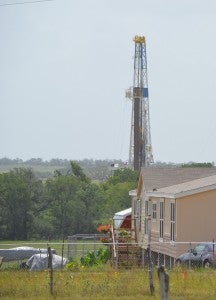When news broke this week alleging that officials working for Gov. Rick Scott of Florida – a state that faces devastating impacts from climate change, such as being partially submerged – had unofficially banned use of the terms “climate change” and “global warming” from state documents, I had to check my calendar to see what year this is.
It felt as if we were back in 2003, when the George W. Bush administration was up to the same tricks. A former American Petroleum Institute lobbyist named Philip Cooney, who was then chief of staff in the White House Council on Environmental Quality, made hundreds of edits and deletions to EPA documents.
This country is drowning
Bush’s White House tried to muzzle the EPA
Cooney’s goal, according to a House committee investigation, was to “exaggerate or emphasize scientific uncertainties or to deemphasize or diminish the importance of the human role in global warming.” Cooney insisted on such extreme edits that that EPA decided to eliminate the climate change section from one report entirely.
After New York Times reporter Andrew Revkin broke the news about what was going on, Cooney resigned from the White House – and went to work for Exxon Mobil.
It’s not yet clear exactly what happened in Florida. After four former staffers with the Florida Department of Environmental Protection said they’d been told not to use the terms “climate change,” “global warming” or “sustainability,” and that this ban was widely known, Gov. Scott told reporters this week “it’s not true.”
The DEP website does include references to climate change, though most are several years old. Meanwhile, at least one group has asked the agency’s inspector general to investigate.
Other states tried to censor, too
With an overwhelming majority of the American public favoring climate action, skeptical politicians are starting to crab-walk in the direction of climate reality. “I’m not a scientist” is the current favorite dodge and also with Gov. Scott – an attempt to avoid both outright denial and the responsibility to act that comes with recognizing the problem.
But as Emily Atkin reported in Climate Progress, other states where the governors still don’t accept the scientific validity of human-caused climate change have also been pulling out the muzzle.
Pennsylvania’s Department of Conservation and Natural Resources was accused of pulling references to climate change from its website under orders from aides to Governor Tom Corbett. Corbett has since been voted out of office in favor of Gov. Tom Wolf, who understands that climate change is real.
North Carolina’s Department of Environment and Natural Resources was caught doing the same thing. This is the state where the General Assembly in 2012 passed a four-yearmoratorium on policies that rely on scientific models for sea level rise.
Maybe these states should require environmental officials to scrunch their eyes shut, stick their fingers in their ears and chant “nya-nya-nya.” That would surely solve the problem.
Enough already
Here’s a prediction: Attempts to expunge the climate problem by executive fiat – to air-brush state websites and muzzle scientists – are on their last legs. So are evasions like “I’m not a scientist.”
Americans are raising the bar on how politicians from both parties talk about this issue. Voters will increasingly reward climate honesty and climate action.
Politicians who don’t deliver will find themselves punished at the polls.
This post first appeared on our EDF Voices Blog.












